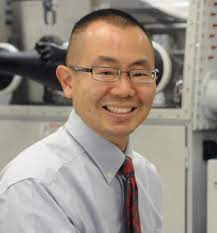Oxygen vacancies are known to be critical to the behavior of complex oxide heterostructures. Here we describe two studies exploiting in situ synchrotron X-ray techniques. The first regards SrTiO3, a well-known band insulator and the most common substrate used in the field of complex oxide heterostructures. Its surface and interface with other oxides, however, have demonstrated a variety of remarkable behaviors distinct from those expected. Using a suite of in situ techniques to monitor both the atomic and electronic structure of the SrTiO3 (001) surface prior to and during growth, we observe the disappearance and re-appearance of a 2D electron gas (2DEG) after the completion of each SrO and TiO2 monolayer. The study resolves a number of longstanding issues associated with complex oxide interfaces and highlight the importance of defect engineering in oxide electronics.
The other study involves SrCoO3-δ, a material known to behave as an oxygen “sponge”. As oxygen exits from the surface, δ approaches 0.5, and SrCoO3-δ forms the brownmillerite phase, creating a superlattice peak from oxygen vacancy ordering. As oxygen is re-incorporated into SrCoO3-δ via a surface redox reaction, the superlattice peak disappears as the perovskite phase is re-formed. Utilizing in situ coherent X-ray scattering at the Advanced Photon Source, we monitored speckle from epitaxial SrCoO3-δ thin films, gaining insight into the dynamics of oxygen-induced phase evolution in the complex oxides. We will discuss the kinetics and dynamics of the vacancy-ordering phase transition and the methods used to distinguish the different atomic mechanisms taking place.

Dr. Dillon Fong is a staff scientist in the Materials Science Division at Argonne National Laboratory. His research focuses on the use of in situ synchrotron x-ray techniques to investigate the behavior of materials in complex and dynamic environments. He won the 2009 Presidential Early Career Award for Scientists and Engineers, the 2011 Chair of Excellence from the Fondation Nanosciences (France), and the 2013 University of Chicago Distinguished Performance Award. Dr. Fong received his PhD (2001) in Applied Physics from Harvard University and his BS in Materials Science & Engineering from Northwestern University.
